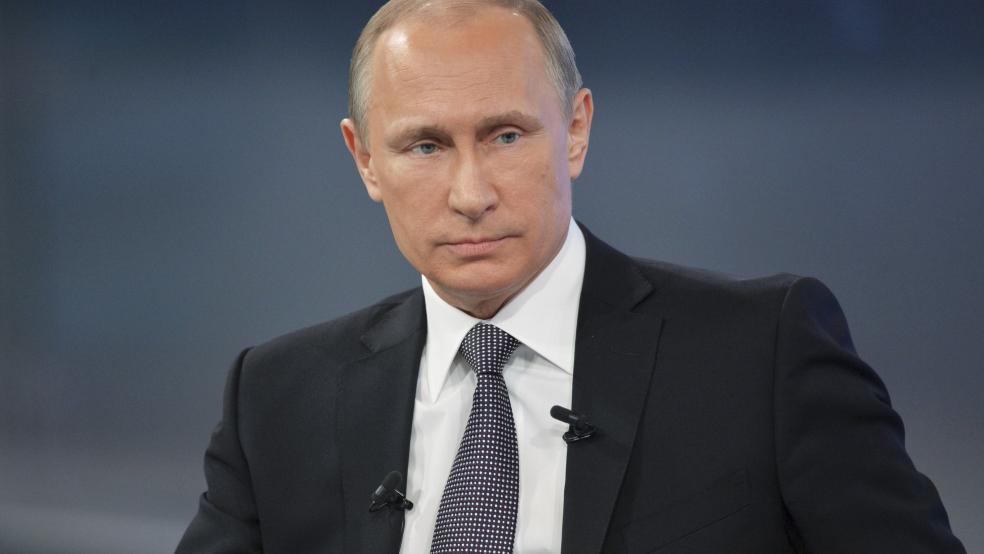Most of the headlines Russian President Vladimir Putin garnered on Thursday were due to his decision to wade into the controversy over corruption in FIFA, soccer’s world governing body. Less noticed, though, as Putin blasted the U.S. for “meddling” in the affairs of international soccer, was a more grim piece of news: The Russian president has signed a new law that makes it illegal to reveal the death of Russian soldiers in peacetime.
Under near-universal condemnation for continued support of an armed uprising in Eastern Ukraine, Russia has consistently and forcefully denied that it has either soldiers or equipment in the war-torn country, part of which it invaded last year.
Related: A Bizarre Tale of Russia Concealing Its Soldiers’ Deaths in Ukraine
However, inconveniently for the Kremlin, corpses of Russian soldiers are being returned to their families bearing wounds that suggest death in a war zone. Journalists and, increasingly, the Russian public have been publicizing this fact and pushing back against the Kremlin’s insistence that it has no troops deployed to Ukraine.
Now, it appears, simply stating the simple fact that a Russian soldier is dead can land someone in jail.
According to Agence-France Presse, the edict signed by Putin on Wednesday, declares that “information revealing losses of personnel...in peacetime during special operations” is now classified as a state secret.
What constitutes a “special operation” under the law is not explained, presumably leaving prosecutors wide latitude in deciding whom to prosecute.
Related: Putin Isn’t Reviving the USSR; He’s Creating a Fascist State
“Not only is this decree a blatant attack on freedom of expression, it also has sinister undertones that will intensify speculation President Putin has something to hide – specifically losses incurred by Russia’s military in Ukraine,” said John Dalhuisen, Amnesty International’s Europe and Central Asia Director.
“This new decree raises some disturbing questions, such as whether journalists and civil society activists reporting on alleged losses in Ukraine in future might be criminally prosecuted for treason,” said Dalhuisen. “It also means families of soldiers killed during ‘special operations’ will be deprived of the truth about the fate of their loved ones.”
The ruling lends new credence to a Bloomberg report, angrily denied by Moscow, that Russian forces have moved mobile crematoriums into Ukraine in order to dispose of the bodies of troops killed there.
Until the new edict was signed, it was unclear how cremating soldiers’ corpses would benefit the Kremlin, given that friends and loved ones would inevitably realize that they had disappeared and raise concerns. However, now that publicizing a soldier’s death is punishable by imprisonment, the possibility that cremation is being used to make it easier to transport bodies surreptitiously to obliterate war wounds appears more plausible.
Related: Putin Clamps Down on Russian Activists, Free Speech
Earlier this month, a group of activists aligned with murdered opposition politician Boris Nemtsov came together to release a report that Nemtsov had been working on when he was gunned down just steps from the Kremlin. It had gathered evidence of Russian involvement in Ukraine and alleged that thousands of troops had been deployed there, with hundreds killed.
One of Nemtsov’s allies who helped complete the report, journalist Vladimir Kara-Murza Jr., was hospitalized in Moscow this week after collapsing in public. The possibility that he was poisoned has been raised, and his family is demanding a toxicology report.
Top Reads from The Fiscal Times:





